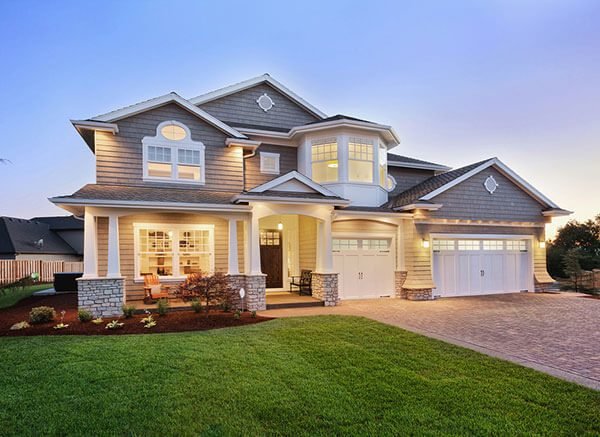What are the 4 Types of Construction? Exploring Main Construction Methods
If you’ve ever marveled at towering skyscrapers, sturdy bridges, or charming houses, you’ve witnessed the marvels of construction. Construction is the backbone of modern society, allowing us to create functional and beautiful structures that enhance our lives. There are four main types of construction methods, each with its unique characteristics and applications. In this article, we’ll delve into these construction types, shedding light on their significance and differences.
Introduction
Construction is an intricate dance between creativity, engineering, and practicality. It encompasses a wide range of activities aimed at creating structures that cater to various needs and purposes. Whether it’s building a family home, a bustling shopping mall, an industrial plant, or a monumental bridge, each type of construction serves a distinct function.
Understanding the Four Types of Construction
Residential Construction
Residential construction focuses on building living spaces, such as houses, apartments, and condominiums. This construction type emphasizes comfort, aesthetics, and functionality. From cozy cottages to modern high-rises, residential construction adapts to evolving lifestyles and architectural trends.
Commercial Construction
In the realm of commerce, commercial construction takes center stage. It involves erecting structures for business activities, including offices, retail stores, and restaurants. The design often aims to attract customers and facilitate efficient operations, blending aesthetics with practicality.
Industrial Construction
Industrial construction revolves around creating facilities for manufacturing and production. Factories, warehouses, and processing plants fall under this category. The emphasis here is on optimizing workflow, ensuring safety, and accommodating specialized machinery.
Heavy Civil Construction
Heavy civil construction deals with large-scale infrastructure projects that shape communities. Bridges, roads, dams, and airports are prime examples. These projects demand robust engineering and meticulous planning to withstand the test of time and environmental challenges.
Factors Influencing Construction Type Selection
Choosing the appropriate construction type hinges on several factors that span from purpose to sustainability.
Purpose and Functionality
The intended purpose of a structure dictates the construction type. A hospital, for instance, requires meticulous planning to accommodate medical equipment and ensure patient comfort, while a sports stadium demands unique layouts for spectator views and safety.
Budget and Resources
Financial considerations drive construction decisions. A residential project might have a more limited budget than a state-of-the-art research facility. Effective resource management is essential to deliver quality within constraints.
Environmental Considerations
Sustainability plays a pivotal role in modern construction. Designing eco-friendly structures that minimize environmental impact is becoming increasingly important. Construction methods must align with environmental regulations and incorporate green technologies.
Comparing Construction Methods
Each construction type employs distinct techniques, materials, and approaches.
Techniques and Materials
Residential construction often emphasizes wood framing and traditional building materials. Commercial projects might feature steel framing and glass facades. Industrial and heavy civil construction rely on robust materials like concrete and steel to withstand heavy use and environmental stressors.
Timeframes and Complexity
The time required for construction varies across types. Residential projects typically have shorter timelines compared to complex industrial or civil projects. The level of intricacy, from architectural design to engineering calculations, also varies significantly.
Specialized Skills and Equipment
Different construction types demand specific skills and equipment. Residential builders need expertise in interior finishes, while heavy civil construction requires proficiency in large-scale machinery operation and structural engineering.
Main Challenges in the Construction Industry
Despite its significance, the construction industry faces challenges that impact projects and professionals.
Safety and Regulations
Construction sites are inherently hazardous, demanding rigorous safety measures. Regulations must be followed to ensure the well-being of workers and the public.
Project Management
Coordinating various aspects of construction, from design to execution, is complex. Effective project management ensures timely delivery and cost-efficient outcomes.
Sustainability and Innovation
Balancing the need for growth with environmental preservation poses a challenge. Implementing sustainable practices and embracing innovative construction technologies is crucial for the industry’s future.
The Future of Construction
Emerging technologies are poised to transform the construction landscape.
Technological Advancements
From 3D printing of building components to drone-assisted site surveys, technology streamlines processes reduces errors, and enhances precision.
Green Construction Practices
Sustainability takes center stage with eco-friendly materials, energy-efficient designs, and waste reduction strategies shaping the industry’s trajectory.
Conclusion
Construction, in all its forms, shapes the world we live in. From the homes we dwell in to the infrastructure that connects us, each construction type contributes to the fabric of society. Understanding the nuances of these construction methods enables us to appreciate the dedication and ingenuity that go into creating the structures that enrich our lives.
Frequently Asked Questions (FAQs)
What is the most common type of construction?
The most common type of construction is residential construction, which involves building houses and living spaces for individuals and families.
Which construction type requires the heaviest machinery?
Heavy civil construction, which focuses on large-scale infrastructure projects like bridges and dams, often requires the use of heavy machinery for excavation and structural work.
How do construction methods vary globally?
Construction methods vary globally based on factors such as available resources, cultural preferences, and local regulations. Different regions may prioritize certain construction types over others.
What role does architecture play in construction?
Architecture plays a crucial role in construction by providing the design and vision for a structure. It blends aesthetics, functionality, and practicality to create spaces that meet specific needs.







